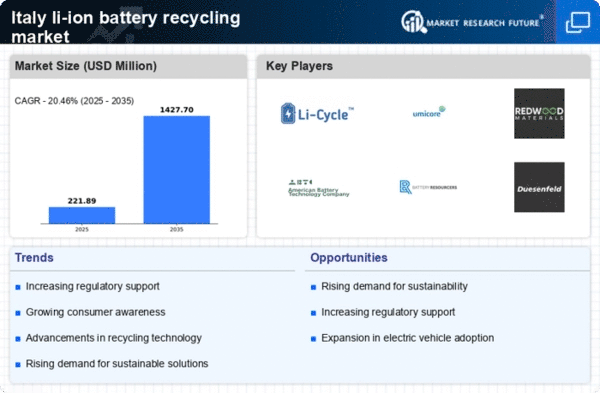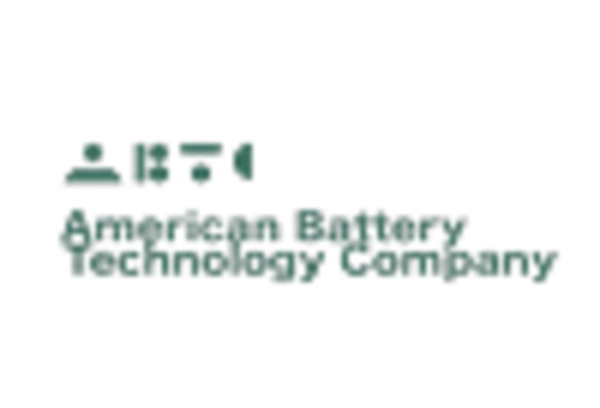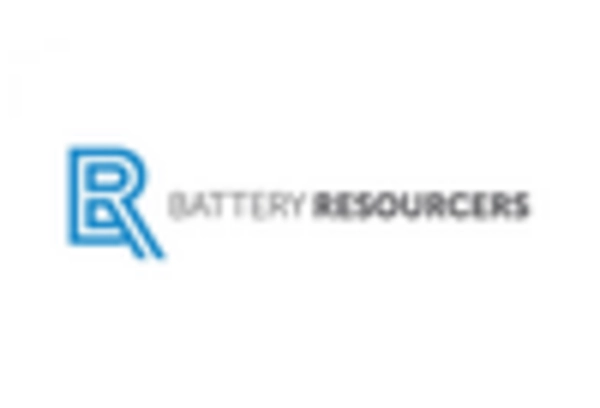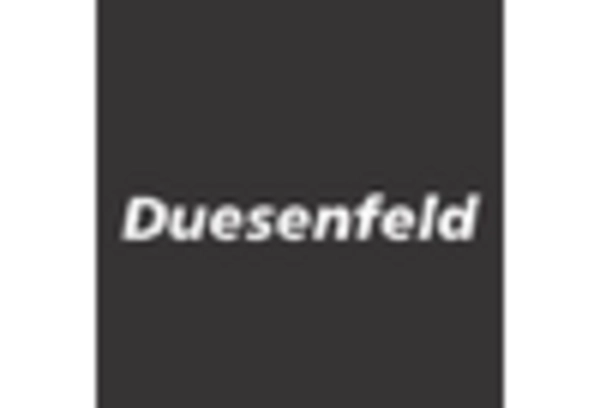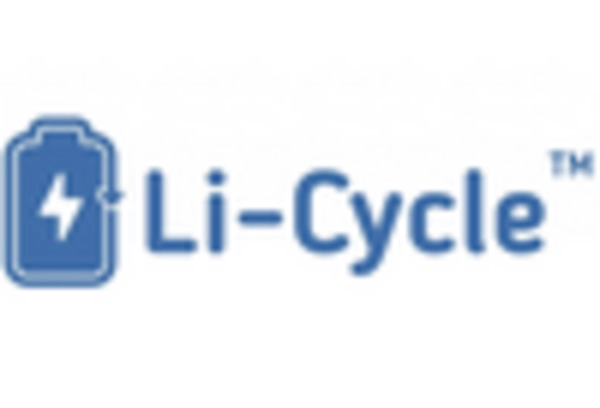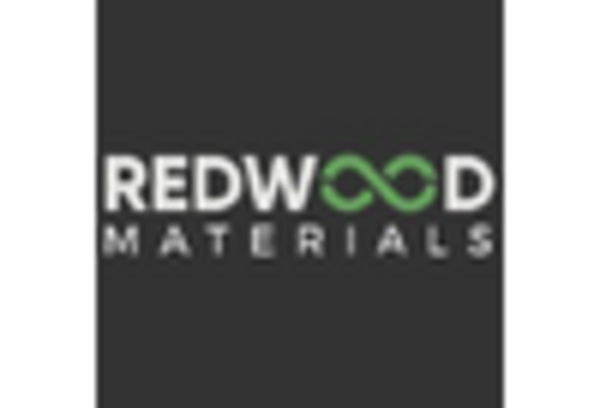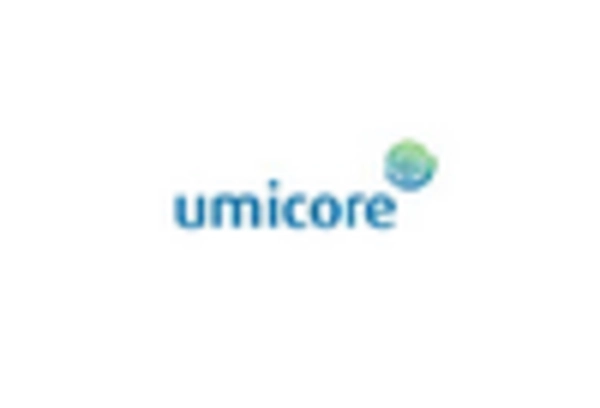Rising Electric Vehicle Adoption
The rising adoption of electric vehicles (EVs) in Italy is a significant driver for the li ion-battery-recycling market. As the number of EVs on the road increases, so does the demand for efficient recycling solutions for their batteries. In 2025, it is estimated that the number of electric vehicles in Italy will surpass 1 million, leading to a corresponding rise in battery waste. This surge presents both challenges and opportunities for the recycling industry. Companies that can effectively manage the recycling of these batteries will likely see increased demand for their services. Furthermore, the Italian government is promoting EV adoption through various incentives, which may further accelerate the growth of the li ion-battery-recycling market as the need for sustainable disposal methods becomes more pressing.
Government Incentives and Support
Government incentives and support play a crucial role in shaping the li ion-battery-recycling market in Italy. The Italian government has implemented various policies aimed at promoting recycling initiatives, including financial incentives for companies that invest in recycling infrastructure. In 2024, it is projected that these incentives could lead to a 20% increase in recycling capacity across the country. Additionally, the government has established partnerships with private sectors to enhance recycling processes and technologies. This collaborative approach not only boosts the li ion-battery-recycling market but also aligns with Italy's broader environmental goals. As these initiatives gain traction, they are likely to attract more stakeholders to the recycling sector, fostering innovation and efficiency.
Consumer Demand for Eco-Friendly Products
Consumer demand for eco-friendly products is increasingly shaping the li ion-battery-recycling market. As awareness of environmental issues grows, consumers are actively seeking products that are produced sustainably and can be disposed of responsibly. This trend is particularly evident in Italy, where surveys indicate that over 70% of consumers prefer brands that demonstrate a commitment to sustainability. Consequently, manufacturers are under pressure to adopt recycling practices that align with consumer expectations. This shift not only drives the demand for recycled materials but also encourages companies to invest in the li ion-battery-recycling market. As businesses respond to this consumer demand, the market is likely to expand, fostering a culture of sustainability and responsible consumption.
Increasing Demand for Sustainable Solutions
The rising demand for sustainable solutions in Italy is a pivotal driver for the li ion-battery-recycling market. As consumers and businesses become more environmentally conscious, the need for effective recycling methods intensifies. This shift is reflected in the Italian government's commitment to achieving a circular economy, which aims to reduce waste and promote resource efficiency. In 2023, Italy reported a 15% increase in the collection of used batteries, indicating a growing recognition of the importance of recycling. The li ion-battery-recycling market is poised to benefit from this trend, as companies that prioritize sustainability are likely to gain a competitive edge. Furthermore, the integration of sustainable practices into corporate strategies may lead to increased investments in recycling technologies, further propelling market growth.
Technological Advancements in Recycling Processes
Technological advancements in recycling processes are significantly influencing the li ion-battery-recycling market. Innovations such as hydrometallurgical and pyrometallurgical methods are enhancing the efficiency of battery recycling, allowing for higher recovery rates of valuable materials. In Italy, research institutions and companies are collaborating to develop cutting-edge technologies that can process lithium-ion batteries more effectively. For instance, a recent study indicated that new recycling techniques could increase material recovery rates by up to 30%. This not only reduces waste but also lowers the cost of raw materials for manufacturers. As these technologies become more widely adopted, the li ion-battery-recycling market is expected to experience substantial growth, driven by improved operational efficiencies and reduced environmental impact.


